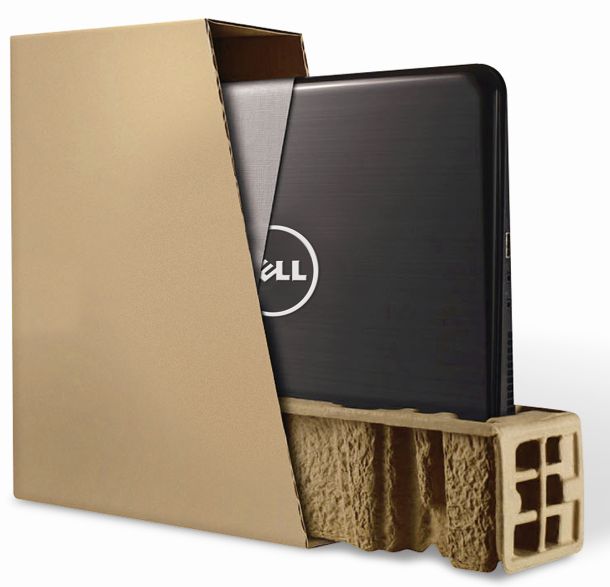Dell's 2020 Legacy of Good program helped it score highly in the Large Communications and Electronics category of the APC awards, with its focus on delivering social and environmental benefits as a key part of its business objectives.
Apart from its 2020 Legacy of Good program, Dell boasts a technology recycling program and was the first computer manufacturer to ban e-waste export to developing countries.
Dell has engaged with the community through its support of cancer research and early childhood learning programs, and has shown innovation in sustainable packaging with revolutionary new materials such as wheat straw and AirCarbon packaging. In fact, Dell was the first in the industry to use bamboo (2009), mushrooms (2011), wheat straw (2013) and AirCarbon made from captured methane (2014) while continuing to shrink the amount of material it sends to customers and looking to make it all waste-free.

To top it off, Dell has proven its energy efficiency with 150 of its products registered as Energy Star-compliant.
Dell's ANZ producer responsibility compliance senior manager Susan Poh says sustainability is “deeply embedded” within the company.
“As part of the 2020 Legacy of Good program, Dell Packaging has two zero-waste goals to make sure all its packaging is sustainably sourced and either recyclable or compostable.” she says.
“We're also continuing our engineering efforts to minimise the box size to reduce transportation costs and effects on the environment. Sustainability, performed correctly, is actually lower cost. Our guiding principle for sustainable packaging solutions is cost parity with traditional packaging.
“As a result, Dell sustainable packaging efforts have avoided 31 million pounds of packaging waste and saved US$53 million since 2009.”
Who's responsible?
Dell's packaging team is led by global procurement and sustainable supply chain director Oliver Campbell, who's been responsible for casting vision and creating the business framework. He has a team of people responsible for developing new engineering materials, assessing manufacturing processes, and supporting supplier involvement to bring a zero-waste packaging goal into reality.
“While they've won numerous awards, the team still holds creative sessions at a local ice cream parlour for inspiration,” he says.
“They definitely keep their feet on the ground while managing to put their head in the clouds from time to time.”
What's ahead?
There is, of course, more innovation planned for the future, with the zero-waste 2020 target etched in the company's consciousness.
Dell is two thirds of the way there on a total unit basis, and close to 90 per cent on a total weight basis.
“We think the best is yet to come as we continue to evaluate new technologies,” he says.
“It’s exciting to see how these innovative technologies are being introduced to provide better packaging at lower cost, but also contribute to a better environment.”
Dell Australia became a signatory to the National Packaging Covenant in 2007.







